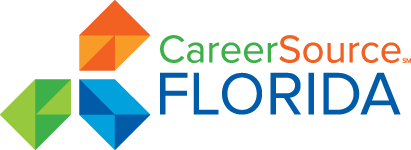
Leveraging Strategic Partnerships to Build Capacity Statewide
About
Florida recently brought together more than 100 public and private sector experts to serve on Apprenticeship Catalyst Workgroups.
The Workgroups were charged with identifying strategies in four key areas to expand apprenticeship: governance, business outreach, population outreach, and data sharing. A year later, after contributing a collective 1,300+ hours, the Workgroups have completed their efforts, offering 60+ recommendations summarized in the report Filling Florida’s Skills Gap Through Apprenticeships and paving the way for transformative system change.
Ideas include encouraging and supporting partnerships to develop high school pre-apprenticeship programs and establishing Registered Apprenticeship performance data collection and dissemination processes. Together, the three lead partners - CareerSource Florida, the Florida Department of Economic Opportunity, and the Florida Department of Education - are prioritizing the recommendations while keeping stakeholders engaged through regular updates.
The process has sparked stronger partnerships, a deeper understanding of apprenticeship among all partners, new opportunities, and increased momentum as the Workgroup members collaborated over the course of the year. New initiatives include:
- The inaugural Statewide Apprenticeship Florida Summit held in June, which showcased state and national best practices for apprenticeship as an earn-and-learn model;
- Competitive apprenticeship grants to local workforce development areas funded by the State Workforce Investment Board from State Apprenticeship Expansion grant and Workforce Investment and Opportunity Act state-level dollars;
- An updated sector strategies local assessment tool that embeds career pathways and work-based learning, including apprenticeship; and
- A forthcoming strategic outreach plan to shape perceptions and heighten awareness of apprenticeship opportunities among employers, apprentices, and prospective apprentices, including secondary and post-secondary students.
For states interested in pursuing a similar strategy, Florida identified and recommends several essential elements:
- A diverse cross-section of leaders from industry (especially in growth sectors without established apprenticeships), education, workforce development, economic development, non-profit advocacy groups, and governmental agencies that serve special populations who can provide insight into their resources, needs, and technical requirements;
- Experienced, knowledgeable, neutral support staff who can facilitate and navigate sometimes sensitive or complex conversations; and
- Data that can illuminate the challenges, motivate action, address common misperceptions, and guide decisions. “Have data to support how and why you do the things you do,” says ApprenticeshipUSA Project Director Elisia Norton. “Always go back to the data: What are employers and potential apprentices saying they need?”
Source: Apprenticeship Connections Newsletter – September 2018
More information: Elisia Norton |enorton@careersourceflorida.com
Materials
Comments
Suggested Content
- Governors' Top Education Priorities in 2019 State of the State Addresses
- Adaptive Leadership Teams Focus for 2021 and Beyond
- 2021 Director’s Alert: A New Era of Board Stewardship Begins
- Indicators of an Inclusive Regional Economy
- Using Emergency Declarations to Address the Opioid Epidemic: Lessons Learned from States
- Workforce Boards: Planning
- Workforce Boards: Leveraging Resources
- Governors’ Top Education Priorities in 2020 State of the State Addresses
Content Details
Topics:
Target Populations:
Programs:
Geographic Locations:
Industry Sectors:
- Last Updated:
- Created:
- Resource Publication Date: 2018
- Posted by: Damon Jones
- Posted in: Global
